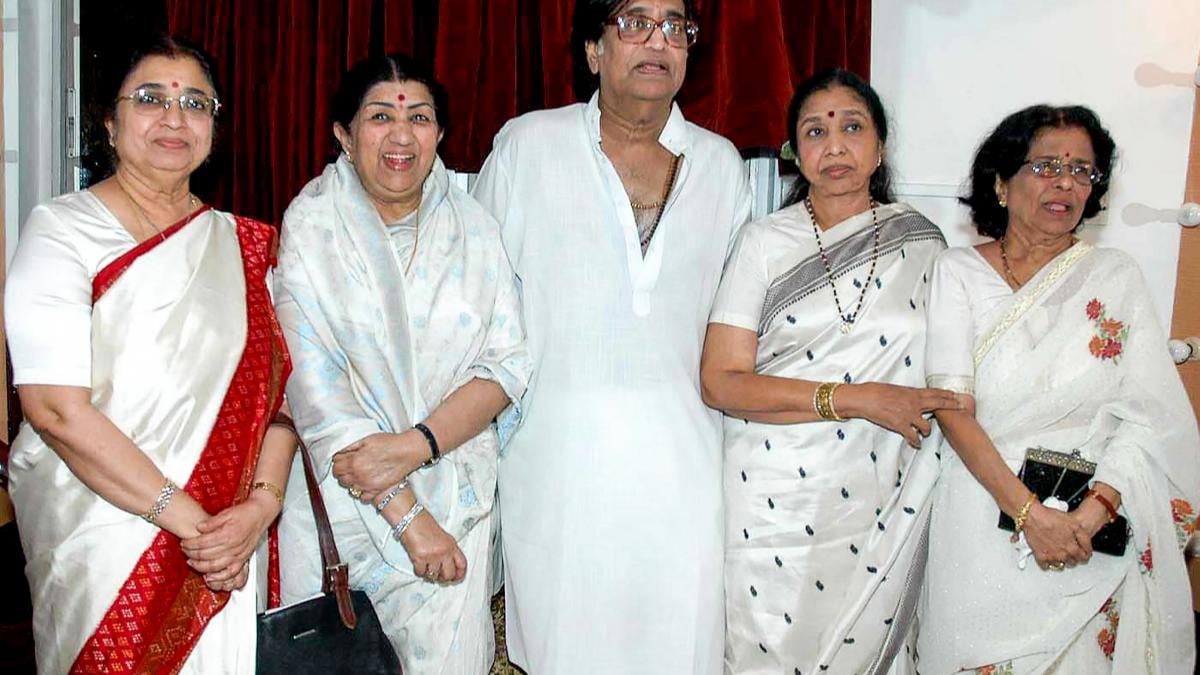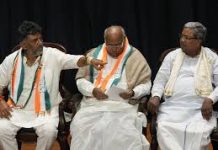
Lata Mangeshkar kept herself away from the media glare and was known to be a very private person. However in a rare long conversation, she answered all queries posed by Nasreen Munni Kabir in a candid way
Lata Mangeshkar passed away, leaving back those everlasting songs and also all of those known and unknown and little-known aspects to her personality. She kept herself far away from the media glare and was known to be a very private person, interacting with only close friends and family.
To know more about her, the last two days I have been re-reading this volume on her – ‘Lata Mangeshkar…In her own voice. Conversations with Nasreen Munni Kabir’(Niyogi Books). Very readable, it is a detailed conversation flowing along so very effortlessly between the two, Lata Mangeshkar and Nasreen Munni Kabir.
All possible aspects to her personal and professional life are there in this volume as part of the long conversation. She answers all queries put forth by Kabir, in that rather candid way. And though one is tempted to quote extensively but space constraints come in way, so will keep to the most significant quotes of Lata Mangeshkar.
On the controversy about her supposedly strained relationship with her sister Asha Bhosle, she has this to say in this volume: “Asha and I have always been close and still are. In 1947, when she was only fourteen, she wanted to marry a neighbour of ours, Ganpatrao Bhosle, who was a ration inspector. Mai was completely against the marriage. So Asha left home and married against Mai’s wishes. Mai was most unhappy …Once Asha was married her husband did not want her to do anything with us. She wasn’t allowed to see us or write to us. This was the situation for years…Asha suffered a lot during those years. She finally left her husband in 1960…It’s wrong to talk of rivalry having spoilt our relationship. We are sisters and neighbours. We talk to each other and eat together. If either of us has a problem, we tell each other. And if we have something to celebrate, we celebrate together.”
*****
On what upsets Lata Mangeshkar: “I am usually quite patient. But when I hear anyone saying something that I know to be a lie, I get angry. I might not let on and usually go quiet, but inside I am angry when people lie. I can’t say I’m a great reader of character but I can tell when someone is genuine or not. I may not get it 100 per cent right, maybe 75 per cent…Another thing that really makes me angry is when I hear someone sing out of tune. I can’t stand it.”
*****
On the query of Hindus and Muslims working together in the film industry, she said: “Yes, we all worked together – there were Hindus and Muslim music directors, lyricists, singers. Sometimes we discussed why Hindus and Muslims fought with one another. We are the same. We are the same colour and the same race. So why? Naushad sahib considered me like his younger sister; he never saw me as different. I spent a lot of time with Majrooh sahib and his family; I never thought of them to be different. We were never divided on religious ground. We never felt any tension between us because some were Hindu and others Muslim. Yet, there was a lot of communal tension around us in those early days. In 1946, terrible riots broke out in Bombay. We were so worried, to the extent that Mai decided to take us all to Kolhapur where we stayed in Master Vinayak’s house. But it wasn’t long before we returned to Bombay….For me there is no difference between Hindu and Muslim. I didn’t see a difference then nor do I see it now. I see the person. If I don’t like a person, I just don’t like him or her. But my likes and dislikes have nothing to do with them being Hindu, Muslim, Sikh or Christian.”
On asked how important is religion to her, she detailed: “I believe in God and everyone in the family does too. Whatever we have is thanks to His benevolence. No matter what you choose to call Him: Allah, Ishwar or God. He gives everything to us. I always bow before God and say: ‘You have granted me everything.’ I can never forget this. I pray in the morning and at night before I sleep….I prefer silence to talking these days. I’m not always in a mood to talk. I am home most of the time. I listen to music and read. If I feel like talking to someone, I telephone a friend.”
*****
When asked about her not marrying, remaining single, so maybe lonely,

She said : “No , not really. Remember I have always lived with my family. I grew up in my family. When I was young I had many responsibilities but I was always made to feel like a protected child. It was Mai who was the eldest in the family and it was she who looked after us all. She was only thirty-six or thirty- seven when my father died. She was a very peaceful person, tolerant and patient. When she passed away in 1995,I felt her loss deeply. It was then I became the head of the family. I had to grow up.”
*****
On whether she had ever met Mahatma Gandhi, she replied: “No, but I heard him speak at a public gathering at Shivaji Park and at Chowpatty in Bombay in the early 1940s. He made a great impression on us and on everyone who was there. We had tremendous respect for Gandhiji and also for Jai Prakash Narayan too. But I had no interest in politics then and nor do politics interest me know.”
******
On does she remember where was she on 14 August 1947 – the day India gained Independence?
“We were at home and in the evening we all went out to see the lights. There was much rejoicing on the streets and a great feeling of happiness. It was a big day.”
******
On whether Lata had an inkling of soaring such heights of fame and success. There is this dream detailed right at the start of the volume.
In fact, right in the Introduction to this book, Kabir starts off detailing this particular dream: “Lata Mangeshkar remembers a dream that returned to her every single night when she was in her early twenties. Coming home from recording two songs in the morning, two in the afternoon, two in the evening, she would fall asleep and the dream unfurled: it is early morning and she finds herself all alone at a black-stoned temple by the sea. Unaware of the deity associated with the temple, she makes her way through the sacred space. At the back of the temple there is a door. She opens it and sees a few steps leading from the door to the dappled water. She sits on the stone steps and the waves gently wash over her feet…Young Lata thought nothing of the dream but when it reoccurred night after night, and for several months, she decided to share it with her mother, Shudhhamati Mangeshkar, who listened quietly to her and said: ‘God has blessed you. You will be very famous one day.’”













